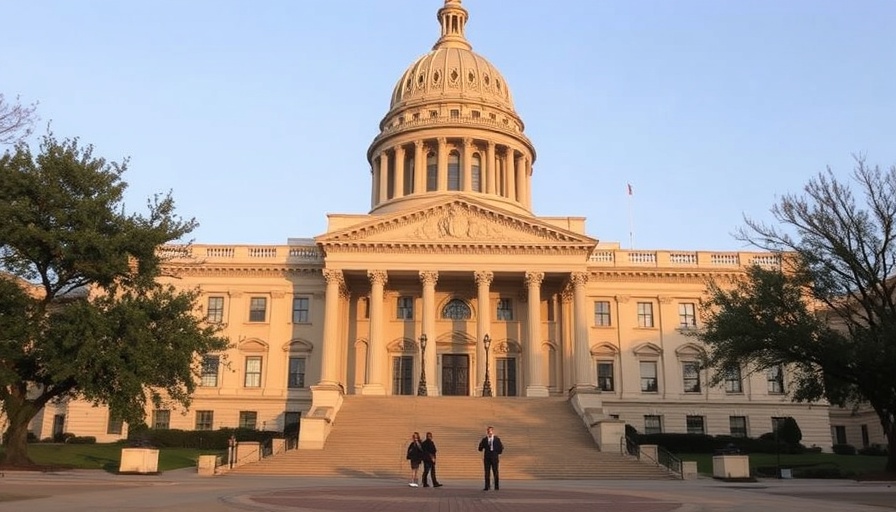
The Backlash Against NDAs: A Cultural Shift in Texas
The Texas House has made a significant stride toward addressing the cultural issues surrounding sexual assault by unanimously passing House Bill 748, known as "Trey's Law." This legislative move signals a wider backlash against non-disclosure agreements (NDAs) often used to silence victims. With the bill passing 149 to 0, lawmakers from both parties emphasize the need for changes to protect victims in civil settlements and to eradicate these agreements, which they view as a form of "institutional abuse on top of sexual abuse." This sentiment is echoed by Rep. Jeff Leach, R-Plano, who stated, “We will render them totally void and unenforceable as a matter of law.”
A Legislative Response to Uplift Survivors
House Bill 748 not only addresses the legalities surrounding NDAs but is also a direct response to heartbreaking cases, such as that involving Robert Morris, a former pastor indicted for multiple counts of lewd acts against a minor. The trauma experienced by victims in such cases extends beyond the immediate violations; it often perpetuates through their silence. The passage of this bill underscores the growing recognition that individuals like Morris should not be able to shield their actions behind NDAs.
The Emotional Weight of Non-Disclosure Agreements
Trey’s Law is named in memory of Trey Carlock, who tragically took his own life years after suffering sexual abuse by a camp employee. Carlock’s struggle highlighted the profound emotional toll that NDAs can impose on victims, trapping them in a cycle of silence about their trauma. His sister, Elizabeth Carlock, became a crucial advocate for the bill, having lost her brother to the very stigma that NDAs can create. At a committee hearing, Elizabeth poignantly stated, “It’s no exaggeration for me to claim this as a matter of life and death.” Recognizing the psychological impact that sexual abuse can have on survivors is critical in shaping policies aimed at healing.
Creating a Safer Environment for Future Generations
The proposed legislation aims to provide a safer environment for survivors, especially minors who may not have the capacity to properly consent to such agreements. It represents a significant shift in how the legal system interprets the protection of vulnerable individuals. By removing the legal leverage that NDAs provide to abusers, the bill aims to foster an environment where victims can seek justice without fear of repercussion or public shaming.
Public Sentiment and Ongoing Support
The unanimous vote in the Texas House reflects a growing consensus among lawmakers and the public that laws must catch up with societal expectations regarding justice for survivors. As awareness grows, advocacy organizations play a pivotal role in educating people about the implications of NDAs and the long-term effects of sexual abuse. The chain reaction from this piece of legislation could serve as a model for similar bills across the nation, as other states look to Texas as a bellwether for necessary reform.
Next Steps: What Lies Ahead for Trey’s Law
Now that Trey’s Law has advanced to the Texas Senate, time is of the essence. For the bill to be signed into law, it must pass before the end of May. Advocates for sexual assault survivors are poised to keep the pressure on policymakers, pushing for swift action while raising public awareness about the importance of this legislation. The future of this law could redefine the landscape for sexual abuse cases and pave the way for a more transparent legal framework across the country.
The Broader Impact on the Community
As this legislation plays out, its ramifications will undoubtedly be felt throughout Dallas and Texas at large. Communities are encouraged to engage in local discussions about sexual assault and the role that policies play in enabling or preventing justice for victims. As local news continues to follow the developments of Trey’s Law, city residents are urged to stay informed and actively participate in ensuring their voices are heard.
Understanding and addressing these issues is critical to creating a supportive and safe environment for survivors.
As you follow the progress of House Bill 748, consider the importance of your voice in advocating for change. Be part of the dialogue about how we can collectively create a justice system that listens to and supports survivors. Together, we can build a future where non-disclosure agreements are no longer a tool of silence but a thing of the past.
 Add Element
Add Element  Add Row
Add Row 



Write A Comment